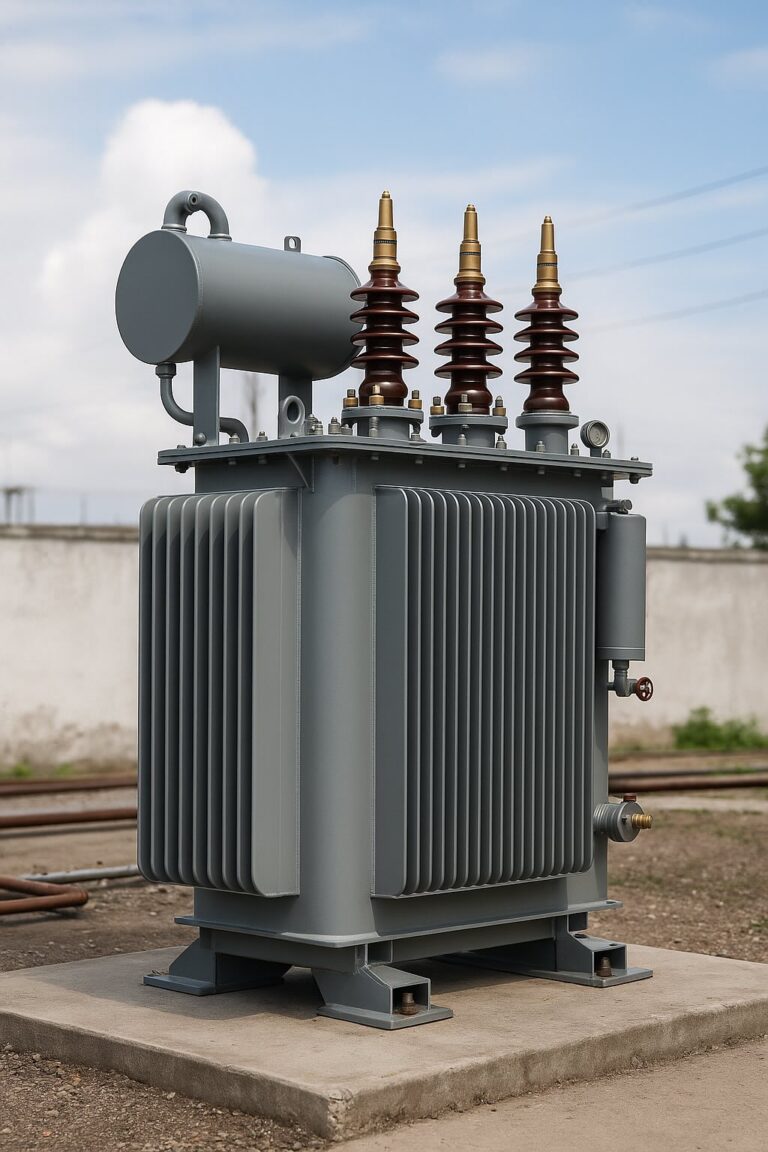What are Fire Alarm Systems? How Do They Work?
Fire alarm systems are essential components of modern safety infrastructure, designed to detect and alert occupants about potential fire hazards...
Devamını Oku

Smart energy management refers to the use of advanced technologies and integrated systems to monitor, control, and optimize energy consumption in real-time. It plays a crucial role in industrial, commercial, and residential settings by providing insights into energy usage patterns and enabling informed decisions to reduce waste and improve efficiency. With the help of data analytics, sensors, and automation, organizations can not only lower their energy costs but also minimize their environmental impact.
As global energy demands increase and sustainability goals become more critical, understanding what is smart energy management is essential. It’s not just about saving electricity—it’s about building smarter infrastructures. When integrated with industrial automation systems (source), smart energy management allows companies to automate processes, predict energy needs, and respond proactively. This ensures operational continuity, improves competitiveness, and contributes to global efforts in reducing carbon emissions and protecting finite natural resources.
Smart energy management is a modern approach to overseeing and optimizing energy use through real-time monitoring, intelligent analytics, and automated systems. It involves a network of interconnected technologies such as sensors, data platforms, and control units that work together to collect energy usage data, analyze it, and make adjustments that enhance overall efficiency. This system enables organizations to reduce energy waste, lower operational costs, and align with sustainability goals.
Smart energy management systems are used across industries, from factories and offices to smart cities. Unlike traditional energy management, these solutions are dynamic and adaptable, reacting instantly to changing energy demands. The answer to what is smart energy management lies not only in its ability to save resources but also in its role as a digital transformation tool. It empowers companies to be more proactive and data-driven in how they consume energy, creating a significant competitive edge in energy-intensive sectors.
Smart energy management is necessary due to rising energy costs, increasing environmental concerns, and strict regulatory requirements. By monitoring and optimizing energy use, organizations can significantly cut expenses and reduce their carbon footprint. It also enhances operational reliability and supports sustainability initiatives. In industrial settings, it enables seamless energy control, ensuring efficiency and competitive advantage.
Smart energy management works through a combination of real-time data collection, advanced analytics, and automated decision-making. Sensors and meters placed throughout a facility gather detailed energy consumption data. This data is transmitted to a centralized platform, where it’s processed using intelligent algorithms that detect usage patterns, inefficiencies, and anomalies. Based on these insights, the system can recommend or automatically implement adjustments to improve efficiency.
In some cases, smart systems will preemptively modify equipment operations to avoid peak energy usage or unnecessary consumption. When integrated with industrial automation infrastructure, the system can also coordinate with production processes to ensure optimal energy distribution. Over time, machine learning tools improve the system’s performance, learning from historical trends to make increasingly accurate and efficient adjustments. This ensures ongoing savings and enhanced operational control
A wide range of cutting-edge technologies powers the functionality of smart energy management systems. These include IoT (Internet of Things) sensors, artificial intelligence (AI), machine learning algorithms, cloud-based platforms, and smart grid infrastructure. Together, these technologies enable the system to continuously monitor energy use, analyze trends, and adapt to changes in real time. This ensures maximum efficiency with minimal human intervention.
When combined with industrial automation solutions, these technologies allow for more than just monitoring—they enable intelligent decision-making and action. For instance, IoT devices capture consumption data, while AI platforms assess this data to optimize energy use. Cloud systems ensure remote access and scalability, and smart grids provide two-way communication between energy producers and consumers. The result is a highly adaptable, responsive, and data-driven approach to energy management.
IoT integration plays a vital role in smart energy management by enabling devices and systems to communicate seamlessly. Sensors and smart meters collect real-time energy usage data and transmit it to central platforms. This connectivity allows organizations to monitor consumption instantly, detect inefficiencies, and automate energy-saving responses, all while improving system visibility and operational control.
Artificial intelligence (AI) and machine learning (ML) enhance smart energy management by enabling predictive analytics and intelligent automation. These technologies analyze historical and real-time energy data to forecast demand, identify inefficiencies, and suggest optimal energy-saving actions. Over time, they adapt and improve, helping businesses continuously reduce costs and boost energy performance with minimal manual input.
Cloud-based systems in smart energy management offer remote access, scalability, and centralized data storage. Users can monitor, analyze, and control energy usage from any location with internet access. These platforms provide real-time insights, streamline data processing, and support integration with other digital systems, making energy management more flexible, efficient, and responsive to changing demands.
The smart grid is a modernized electrical grid that uses digital technology to enhance the reliability and efficiency of smart energy management. It enables two-way communication between energy providers and consumers, balancing supply and demand in real time. This structure supports distributed energy resources, reduces outages, and improves energy distribution through intelligent automation and data-driven control.
Smart energy management delivers significant advantages for businesses and institutions aiming to reduce costs and improve sustainability. By monitoring energy consumption in real time, organizations can identify and eliminate waste, optimize system performance, and lower utility bills. These systems also provide valuable insights into usage trends, helping decision-makers develop data-driven strategies for long-term efficiency.
Beyond financial savings, smart energy management supports environmental goals by reducing carbon emissions and encouraging responsible resource use. It also enhances operational reliability by preventing system overloads and predicting potential failures. Additionally, integrating smart systems with industrial automation improves overall productivity and creates a resilient, future-ready energy infrastructure that adapts to dynamic operational needs.
A complete smart energy management system is made up of several key components working together to monitor, analyze, and optimize energy use. These include sensors and measurement devices that gather real-time consumption data, data processing and analysis platforms that interpret this information, and automation systems that act on insights to improve efficiency. Each component plays a vital role in enabling accurate control over energy flow.
Sensors detect energy patterns and relay information to cloud-based or on-premise platforms, where advanced software tools analyze the data. Based on these insights, automation systems adjust energy usage across various processes to minimize waste. Control panels allow operators to visualize performance and intervene when needed. These components, especially when integrated with industrial automation, create a seamless and intelligent energy management ecosystem.
Sensors and measurement devices are essential to smart energy management, providing real-time data on variables like voltage, current, and energy consumption. These devices are installed across key points in a facility and transmit accurate readings to a central system. This data forms the foundation for energy analysis, helping organizations detect inefficiencies and improve system-wide energy performance.
Data processing and analysis platforms turn raw energy data into actionable insights. In smart energy management systems, these platforms collect information from sensors and visualize consumption trends, anomalies, and efficiency opportunities. They enable predictive analytics and real-time monitoring, empowering managers to make informed decisions and continuously improve energy performance across the facility.
Automation systems and control panels are the execution layer of smart energy management. Based on data insights, these systems automatically adjust energy usage—turning off idle equipment, shifting loads, or regulating processes. Control panels offer a user-friendly interface to monitor operations, set parameters, and intervene when needed, ensuring both precision and flexibility in energy control.

Fire alarm systems are essential components of modern safety infrastructure, designed to detect and alert occupants about potential fire hazards...
Devamını Oku
An oil-filled transformer is a type of electrical transformer that uses insulating oil as both a cooling and insulating medium....
Devamını Oku
In industrial automation, Distributed Control Systems (DCS) play a crucial role in managing and optimizing large-scale production and process control....
Devamını OkuPROTECTION OF PERSONAL DATA
WEBSITE COOKIE POLICY
Your personal data; It is one of the leading principles of our Organization to protect the privacy of visitors to the website (www.adatech.com.tr) operated by ADATECH as the data controller. This Cookie Usage Policy (“Policy”) explains to all our website visitors and users which types of cookies are used and under what conditions.
Cookies are small text files stored on your device or network server by websites you visit on your computer or mobile device.
They are generally used to provide you with a personalized experience during your use of the website you visit, to improve the services offered and to improve your experience, and may contribute to ease of use while browsing a website. If you do not prefer the use of Cookies, you can delete or block Cookies in your browser settings. However, we would like to remind you that this may affect your use of our website. Unless you change your cookie settings in your browser, we will assume that you accept the use of cookies on this website.
1. WHAT KIND OF DATA IS PROCESSED IN COOKIES?
Cookies on websites, depending on their type, collect data about your browsing and usage preferences on the device you visit the site. This data includes information about the pages you access, the services and products you review, your preferred language option and other preferences.
2. WHAT is a solution and what are its intended uses?
Cookies are small text files that are stored on your device or network server through browsers by websites you visit. These small text files, which contain your preferred language and other settings on the site, help us remember your preferences the next time you visit the site and make improvements to our services to improve your experience on the site. Thus, you can have a better and personalized usage experience on your next visit.
The main purposes of using cookies on our Website are listed below:
3.TYPES OF COOKIES USED ON OUR WEBSITE
3.1. Oturum Çerezleri
Session cookies ensure that the website functions properly during your visit. They are used for purposes such as ensuring the security and continuity of our sites and you during your visit. Session cookies are temporary cookies, they are deleted when you close your browser and come to our site again, they are not permanent.
3.2. Persistent Cookies
These types of cookies are used to remember your preferences and are stored on your device via browsers. Persistent cookies remain stored even after you close your browser or restart your computer from which you visited our site. These cookies are kept in subfolders of your browser until they are deleted through your browser’s settings.
Some types of persistent cookies may be used to provide you with special suggestions, taking into account issues such as your purpose of using the Website.
Thanks to persistent cookies, if you visit our Website again with the same device, it is checked whether there is a cookie created by our Website on your device and if there is, it is understood that you have visited the site before and the content to be transmitted to you is determined accordingly and thus a better service is provided to you.
3.3. Mandatory/Technical Cookies
These cookies are essential for the website you visit to function properly. The purpose of such cookies is to provide necessary services by enabling the website to function. For example, it allows you to access secure parts of the website, to use its features, to navigate on it.
3.4. Analytical Cookies
They collect information about the way the website is used, the frequency and number of visits, and show how visitors navigate to the site. The purpose of using such cookies is to increase performance by improving the way the site functions and to determine the general trend direction. They do not contain data that could enable the identification of visitors. For example, they show the number of error messages displayed or the most visited pages.
3.5. Functional/Functional Cookies
It saves the choices made by the visitor within the site and remembers them on the next visit. The purpose of such cookies is to provide ease of use to visitors. For example, it prevents the site user from re-entering the user password on each page they visit.
3.6. Targeting/Advertising Cookies
They enable the measurement of the effectiveness of advertisements served to visitors and the calculation of the number of times the advertisements are viewed. The purpose of such cookies is to serve ads customized to the interests of visitors.
Likewise, they enable the detection of visitors’ interests specific to their browsing and the presentation of appropriate content. For example, it prevents the advertisement shown to the visitor from being shown again in a short time.
4. HOW TO MANAGE COOKIE PREFERENCES?
To change your preferences regarding the use of cookies or to block or delete cookies, simply change your browser settings.
Many browsers give you the option to accept or reject cookies, accept only certain types of cookies, or be alerted by the browser when a website requests to store cookies on your device so that you can control cookies.
It is also possible to delete cookies previously saved in your browser.
If you disable or refuse cookies, you may need to set some preferences manually, some features and services on the website may not function properly as we will not be able to recognize and associate your account. You can change the settings of your browser by clicking on the relevant link from the table below.
5. ENFORCEMENT OF WEBSITE PRIVACY POLICY
Website Privacy Policy …./…./…./…. . is dated. In case all or certain articles of the Policy are renewed, the effective date of the Policy will be updated. The Privacy Policy is published on the website of the Authority (www.adatech.com.tr) and made available to the relevant persons upon the request of the personal data owners.
ADATECH
Address: Esenyalı Neighborhood Yanyol Street Varyap Plaza No:61-148 Pendik / Istanbul
Telephone: +90 (216 ) 514 80 69
E-mail: [email protected]
Web Address: www.adatech.com.tr